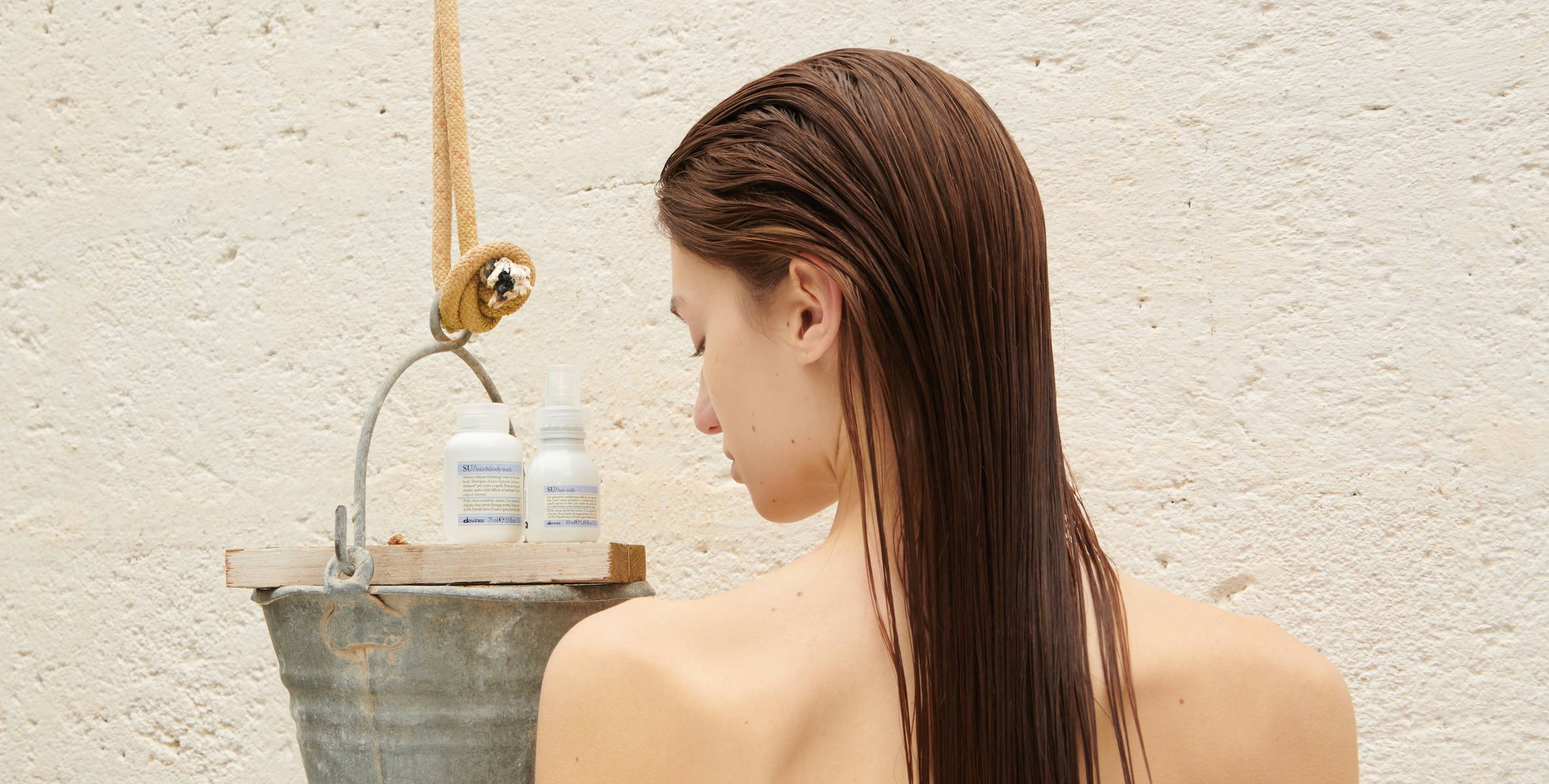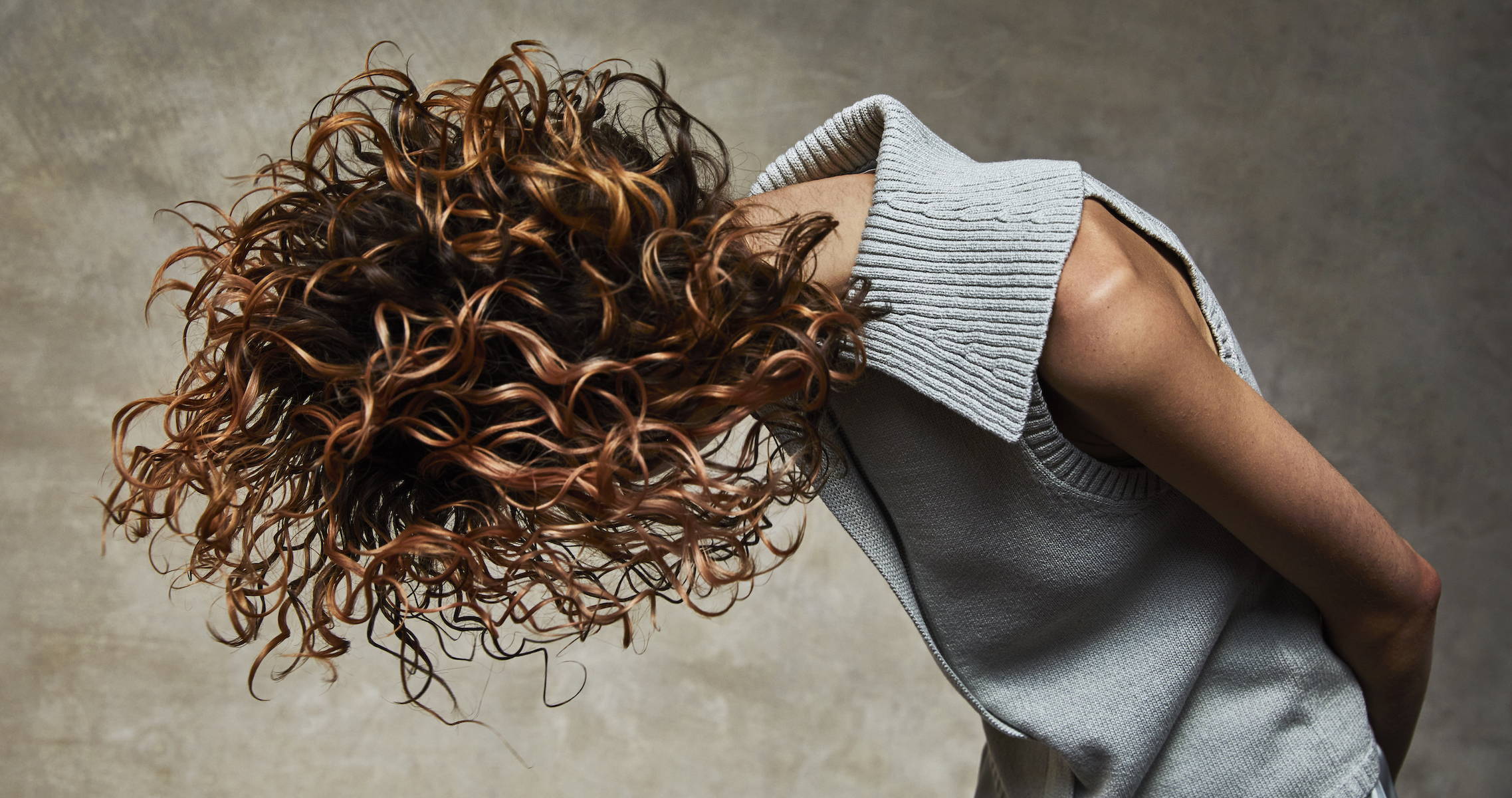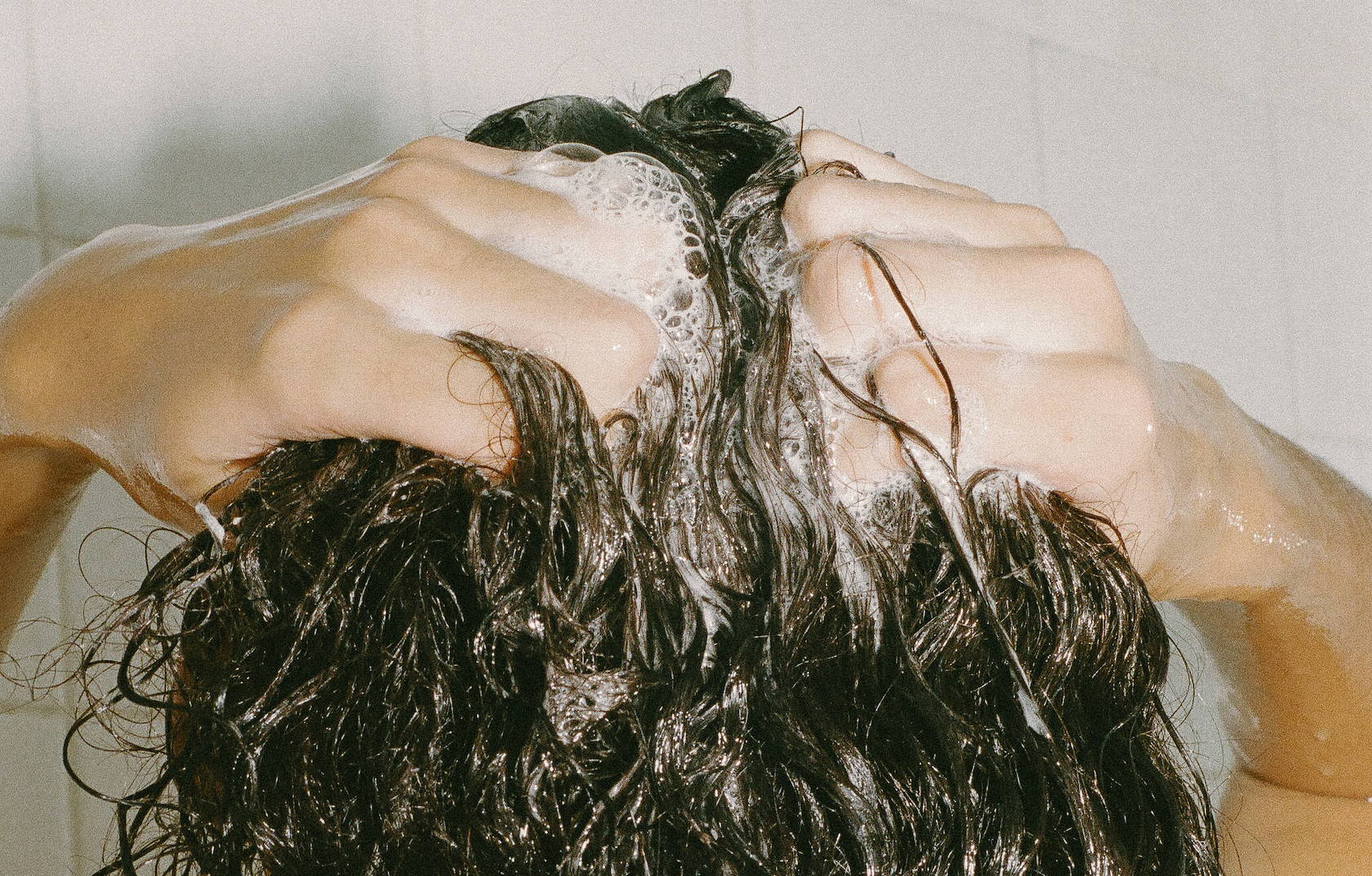Pay with Klarna
Free Carbon Neutral Shipping On Orders $75+, Plus Free Samples!
Getting to know your hair's porosity — how well it absorbs and retains moisture — can help you determine the best ways to maintain, style, hydrate, deep condition and take care of your strands. Whether you have curly, straight, or wavy hair, understanding your porosity is the foundation to your hair care routine. We’re telling you how to measure your hair porosity and how to care for each hair type ahead. Keep reading for the ultimate guide to the hair porosity test, including everything you need to help you get the hair of your dreams!
Hair porosity is the measure of your hair's ability to absorb and hold moisture, and it can be classified into three main categories: low porosity, medium porosity, and high porosity. Understanding your hair's porosity is important because it directly influences the way you should care for your hair. Using the wrong products or techniques for your hair porosity can lead to issues like dryness, breakage, and frizz. So what does high and low porosity hair look like? Low porosity hair cuticles are flat and tight, like the shingles of a roof on a house, making it difficult for water and product to absorb inside. Medium porosity hair cuticles are slightly raised. This is considered normal porosity and the easiest to manage, requiring the least maintenance. High porosity hair cuticles are extremely porous and raised, making it easy for product and moisture to get in, but quickly escape. High porosity hair is typically a sign of damage and needs a little more attention.
Tailoring a hair care routine that works best for you starts with your hair's ability to absorb and retain moisture. So what are signs of high porosity? While curlier hair tends to be more porous because of how difficult it is for scalp oils to make their way through the coils from root to tip, that doesn’t always mean that all highly textured hair has the same porosity. For example, 3C hair and 3B hair can have very different porosities. Wondering how to test hair porosity? Use these to identify high porosity hair:
Place a strand of clean hair in a glass of water. Hair that is low porosity will float; hair that is medium porosity will float, and then sink slowly; and hair that is high in porosity will sink immediately.
Using a spray bottle, dampen a section of your hair. If the droplets easily absorb you have high porosity hair. If the droplets sit on your hair and after a few minutes are absorbed you have low to medium porosity.
Run a thumb and finger up a hair strand from tip to root . If you feel little bumps along the way, your cuticle is lifted and you have high porosity hair. If your fingers slip smoothly, then you have low porosity hair.

What are signs of low porosity hair? If you have low porosity hair, you may find that it is resistant to absorbing moisture, making it prone to dryness and product buildup. But with the right approach and products, you can maintain healthy, hydrated hair. These are our expert approved hair care tips for low porosity hair:
Opt for lightweight, water-based products that won't weigh down your hair or leave behind residue. Look for leave-in conditioners, hair milk, or light oils that penetrate the hair shaft without causing buildup.
Low porosity hair benefits from techniques that help open the hair cuticles, allowing moisture to penetrate. Try the greenhouse method, where you apply a water-based product and cover your hair with a shower cap or plastic wrap to trap heat and encourage product absorption.
Be cautious with heat styling as it can cause damage to the hair cuticles, making it even more challenging for moisture to penetrate. Prime with a heat protectant anytime you plan to heat your strands.
Regular deep conditioning treatments are essential for low porosity hair. Consider using a hooded dryer or a steamer to help the conditioner penetrate your hair better during the treatment.
Low porosity hair is susceptible to product buildup, which can lead to dull, lifeless hair. To prevent buildup, clarify your hair occasionally using a gentle clarifying shampoo.
After applying water or a water-based product to your hair, seal in the moisture with a lightweight oil or serum. This helps lock in hydration.
Consider protective styles that minimize manipulation and friction on your hair. Styles like braids, twists, and buns can help retain moisture and protect the hair.

If your high porosity test came back positive, you likely experience dryness, frizz, and breakage. This is because high porosity hair has widely spaced cuticles, making it prone to absorbing and losing moisture quickly. So it requires extra care to retain moisture and stave off damage. The right tips and products can help you manage and nurture your high porosity hair. These haircare tips will help you manage your high porosity hair.
Sealing your hair with an oil or hair butter after moisturizing can help lock in moisture and prevent excessive moisture loss. Look for lightweight oils like argan oil or jojoba oil, which won't weigh down your hair.
High porosity hair is already susceptible to damage, so limiting heat styling is a must. Minimize the use of heat-styling tools like flat irons and curling wands, and prep your strands with heat protection first.
Protective hairstyles like braids, twists, or updos can help reduce moisture loss and breakage. These styles keep your hair tucked away and shielded from external elements, helping to retain moisture and preserve the health of your high porosity hair.
Frequent deep conditioning treatments are essential for high porosity hair. Use a deep conditioner or that contains emollients and humectants to provide intense moisture.
Steer clear of hair products that contain harsh chemicals or sulfates, as they can further strip your hair of moisture. Opt for gentle, sulfate-free shampoos and products with natural ingredients that nourish and hydrate your hair.
Incorporate leave-in conditioners and moisturizing products into your hair care routine. These products provide an extra layer of moisture and help keep your hair hydrated throughout the day.
An occasional apple cider vinegar (ACV) rinse can help balance the pH of your hair and close the cuticles, reducing porosity. Mix one part ACV with three parts water, pour it over your hair after shampooing, and rinse thoroughly.

Medium porosity hair is a balance between low and high porosity hair, and it’s the easiest hair type to manage. Hair with medium porosity has slightly raised cuticles, allowing it to absorb and retain moisture more effectively than low porosity hair while being less prone to moisture loss than high porosity hair. But you still need to follow a routine tailored to its unique needs.These are the best hair care tips to maintain the optimal health and appearance of your medium porosity hair.
To keep your medium porosity hair well-hydrated, use moisturizing techniques like the LOC (Liquid-Oil-Cream) or LCO (Liquid-Cream-Oil) method.
Opt for hair care products specifically formulated for medium porosity hair. Look for conditioners and styling products that contain a good balance of humectants, emollients, and proteins to nourish and strengthen your hair without causing overload.
Deep conditioners in the form of a hair mask with a balanced formulation can provide additional hydration, improve elasticity, and enhance your hair's overall health.
While medium porosity hair is more forgiving to heat styling than high porosity hair, it's essential to take precautions to avoid excessive damage.
To shield your medium porosity hair from environmental factors that can cause dryness and damage. Wear a hat or use a scarf when exposed to the sun, wind, or cold weather.
Knowing your hair's porosity is the key to the happy, healthy hair of your dreams. Whether you have straight, wavy or curly hair, understanding your porosity is the key to maintaining, styling, and caring for your strands. If you’re ready to transform your hair and end frizz and breakage for good. Take our porosity hair test and see where you fall, then build a hair care routine around your results. Whether you’ve got high, medium or low porosity hair, use only high quality formulas like the ones from Davines.
by Jaclyn LaBadia, featured contributor
Leave a comment
Comments will be approved before showing up.